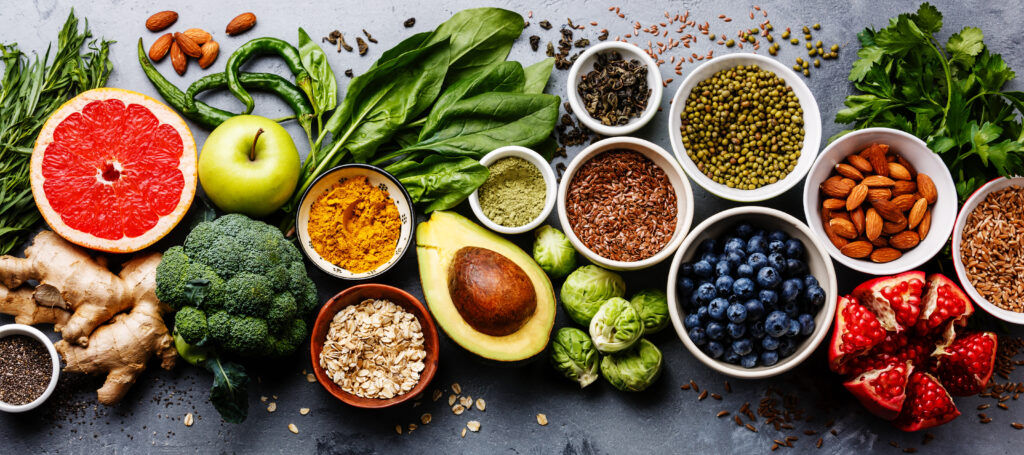I am now thinking about sugar in teaspoons; I am thinking 5 a day. Adults should be consuming a maximum of 30g added sugar per day, (and children 19-24g) so it depends on the size of your teaspoon; mine is quite big at 6g. A typical level spoonful is 4g; so is a sachet or a cube. A larger teaspoon or heaped is about 6g. Naturally occurring sugars are found in milk, whole fruits and vegetables and are not counted as added sugars. Added sugars are those added at home or by the manufacturer as well as those present in honey, fruit juices and syrups.
I want to keep added sugar within limits, know how much I have and of course I want to enjoy my food. Strangely, thinking in teaspoons of sugar helps me to think more positively about added sugar.
This nutritional calculation, comparing a luxury bowl of porridge to a typical sugar-ladden snack shows similar calories but very different amounts of added sugar. Perhaps it’s my Scottish roots, but I eat porridge quite often, especially when I need to be focused and work through the afternoon without feeling hungry. Sounds dull and uninteresting? Ring the changes with some essential indulgence. This is my creamed porridge with raspberries recipe containing 1 teaspoon of added sugar.
Add 100mls water and 240mls whole milk to a small pot over the heat
Add 40g porridge oats and bring to the boil, then simmer for 5 minutes, stir occassionally
Pour into a bowl to cool; add a handful of frozen raspberries – pushing them into the hot porridge
Sprinkle 1 teaspoon Demerara sugar and let it melt
Drizzle 1 spoonful of double cream. YUMMY!
| Nutrition Facts per portion | ||
| Creamed porridge with raspberries | Can classic coke (330mls) and Snickers Bar (48g) | |
| Calories | 385kcals | 384kcals |
| Protein | 12g | 4.5g |
| Total sugars | 21g | 33g |
| of which added | 5g (1 teaspoon) | 28g (> 5 teaspoons) |
| Fat | 16g | 13g |
| Calcium | 300mg | 47mg |
You can see that all calories are not equal! There is similar calorie content but 5 times the amount of added sugar. Total sugar in the porridge comes from naturally occurring sugars: lactose in the milk (11g) and fructose in the raspberries (5g). More than twice the amount of protein, and lots of slow release carbohydrates help feelings of fullness for longer. No sugar high – and no sugar slump! With 6 times the amount of calcium at 300mg, a 30% contribution to a teenagers daily needs for this essential mineral. Oh yes, and it’s healthy for the skin, the digestive system and the brain; providing soluble fibre, prebiotics and slow-release energy for many hours.











